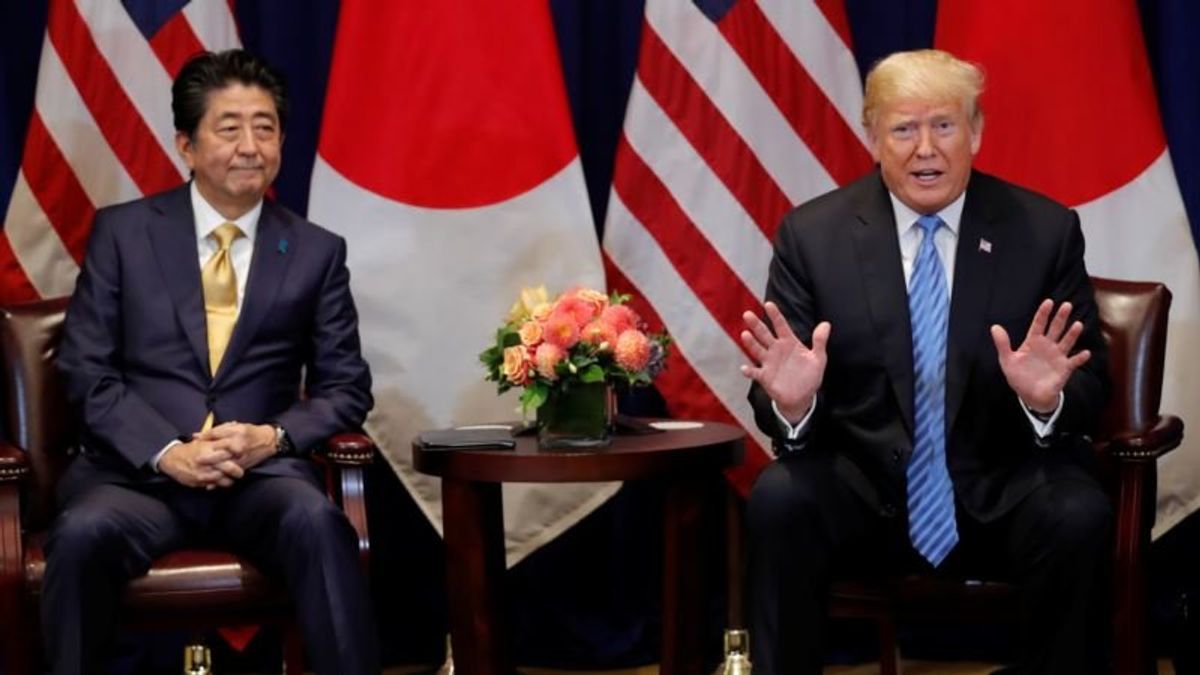
US, Japan Working Toward Free-trade Agreement
US, Japan Working Toward Free-trade Agreement

WHITE HOUSE —
The United States and Japan have agreed to begin negotiations on a bilateral free-trade agreement, reducing the prospect that Washington might impose tariffs against another trading partner.
“We’ve agreed today to start trade negotiations between the United States and Japan,” U.S. President Donald Trump said at a summit with Japanese Prime Minister Shinzo Abe in New York on the sidelines of the U.N. General Assembly.
“This was something that for various reasons over the years Japan was unwilling to do and now they are willing to do. So we’re very happy about that, and I’m sure that we will come to a satisfactory conclusion, and if we don’t, ohhhhhh,” Trump added.
Fast-track authority
The White House released a statement after the meeting, stating the two countries would enter into talks after completing necessary domestic procedures for a bilateral trade agreement on goods and other key areas, including services.
U.S. Trade Representative Robert Lighthizer called it a “very important step” in expanding U.S.-Japan relations. He told reporters that the U.S. and Japan were aiming to approve a full free-trade agreement soon. Lighthizer said he would talk to Congress on Thursday about seeking authority for the president to negotiate the agreement, under the “fast track” trade authority law.
Lighthizer said he expected the negotiations to include the goal of reaching an “early harvest” on reducing tariffs and other trade barriers.
Tokyo’s reticence
Tokyo had been reluctant to commit to a bilateral free-trade pact and had hoped that Washington would consider returning to the Trans-Pacific Partnership, a broader regional trade agreement championed by the Obama administration that Trump pulled out of in January 2017.
Trump has complained about Japan’s $69 billion trade surplus with the U.S. and has been pressuring Abe to agree to a two-way agreement to address it, including during Abe’s visit to Trump’s Florida resort, Mar-a-Lago, in April.
Japanese officials have expressed concern Trump might pressure Tokyo to open up its politically sensitive farm market. They also are wary Trump might demand a reduction in Japanese auto imports or impose high tariffs on autos and auto parts, which would be detrimental to Japan’s export-reliant economy.
Trump is expressing confidence the two sides will reach an agreement.
“We’re going to have a really great relationship, better than ever before on trade,” he said. “It can only be better for the United States because it couldn’t get any worse because of what’s happened over the years.”
 Ginsburg Voices Support for #MeToo on Eve of Kavanaugh HearingNext PostCongress Approves, Sends to Trump Bill to Avert Shutdown
Ginsburg Voices Support for #MeToo on Eve of Kavanaugh HearingNext PostCongress Approves, Sends to Trump Bill to Avert Shutdown







